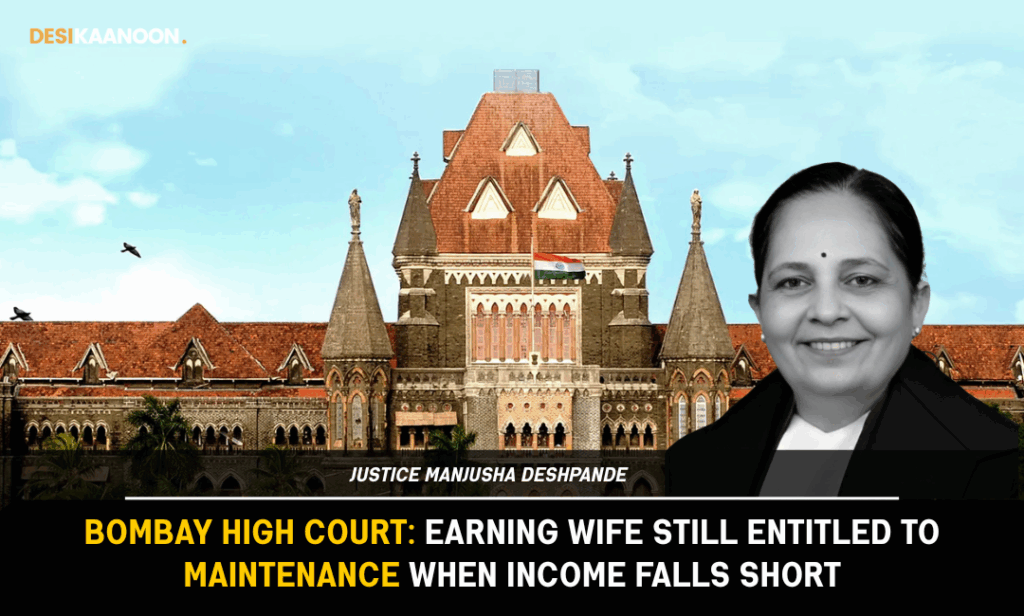Akhya Pandey
Even if a wife is earning, she may still be entitled to maintenance if her income is not enough to sustain her with dignity. On June 18, 2025, the Bombay High Court reinforced this principle, making it clear that employment doesn’t always translate into financial independence—especially when the income isn’t sufficient to maintain a standard of living comparable to what the spouse enjoyed during the marriage.
In SKPS v. PSS (Writ Petition No. 16275 of 2023), Justice Manjusha Deshpande dealt with a case where the wife, although working, sought interim maintenance under Section 24 of the Hindu Marriage Act, 1955. The couple had married on November 28, 2012, but the wife left the matrimonial home in May 2015 due to marital discord. The husband filed for divorce in June 2019, citing cruelty under Sections 13(1) (i-a) and (i-b). In September 2021, the wife applied for interim maintenance. The Family Court granted her ₹15,000 per month starting October 2022, which the husband challenged, arguing that her earnings—roughly ₹40,000 per month including tuition fees and bank interest—were enough to support herself.
Justice Deshpande rejected this claim, pointing out that “merely because the wife is earning, she cannot be denied support,” especially when her income barely meets her basic expenses. The judgment noted the wife’s modest income, her long commute, the fact that she lived with her parents, and her lack of a home of her own. In contrast, the husband resided in an affluent part of Mumbai and earned significantly more. The Court underscored that the purpose of interim maintenance is to ensure a life of dignity during the pendency of matrimonial proceedings—not to penalize a working spouse.
The decision relied on guiding principles laid down in Pravin Kumar Jain v. Anju Jain and Rajnesh v. Neha 2024 INSC 961 which emphasized assessing income disparity, financial needs, and the standard of living during marriage. In this case, while the wife earned about ₹19,000 per month as a teacher and struggled to meet her financial needs, the husband’s income ranged from over ₹57,000 to nearly ₹1 lakh in some months. Although he claimed to have family responsibilities, he failed to provide any substantial evidence of financial hardship.
Upholding the Family Court’s decision, the Bombay High Court dismissed the husband’s petition, ruling that the ₹15,000 monthly maintenance was justified and reasonable. The Court reminded that the question is not whether a wife is earning, but whether she earns enough.
This case contributes to a growing recognition that financial independence is not defined merely by employment. Courts are increasingly mindful that many women, especially those in lower-paying professions, continue to face significant financial insecurity despite having jobs. Maintenance rulings now give priority to the realities of economic disparity, not assumptions based on employment status.
Instagram: Click Here.
LinkedIn: Click Here.
For Collaboration and Business: info.desikaanoon@gmail.com.

